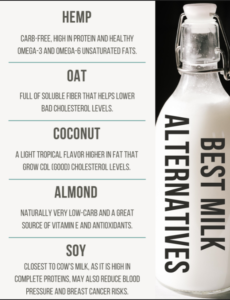 Ben Champ, The Yellow Jacket
Ben Champ, The Yellow Jacket  Brady's Roadhouse
Brady's RoadhouseAmericans struggle to find common ground these days. But not with this. Over two-thirds of the population cannot digest a common household item—dairy.
The pandemic has made short-term health the forefront of conversations today. Yet, the long-term effects of agitated digestive systems wreak havoc on 68% of bodies worldwide, according to medlineplus.gov.
Those who are lactose intolerant and choose to consume milk long-term should monitor changes in digestion, according to Andrew Gordon, junior pre medical major at Waynesburg University. He is concerned that the development of IBS could also be a result of prolonged consumption.
“There is a slight chance that you might damage your microvilli in your intestines, which could cause digestive problems,” Gordon said. “But this is rare and usually people can consume dairy and just bear with the symptoms.”
Jessica Oakes, lactose intolerant junior at Waynesburg University, is used to weighing those pros and cons. She tends to cave in.
“It’s hilarious that people who are intolerant to milk just suffer through the pain to enjoy the pleasures that everyone else gets to enjoy,” Oakes said. “Honestly, sometimes I feel bad for my roommate when I taste something that has milk in it because it definitely stinks up the room!”
 Sierra Medina
Sierra MedinaIn Queso Emergency Carry the Pills
“I’ve never seen a group that has such reckless abandon for their health as lactose-intolerant people,” said Robert Redinger, Waynesburg University junior who has been deathly allergic to peanuts since birth.
“They’re just like, extreme pain or ice cream? Then I see them get the ice cream every time,” Redinger said. “It amazes me that I carry an Epipen everywhere so I don’t die. They don’t even remember to carry their little pills so that their stomach doesn’t hurt.”
Those little pills are available in most grocery stores. Dairy relief pills, commonly referred to as Lactaid pills, provide bodies unable to digest dairy with what they’re missing—lactase. Lactase is an enzyme that specifically breaks down milk sugars.
Lactose is digested by bacteria in the colon when bodies do not have that enzyme. This causes all the telltale signs of digestive distress: Stomach pain and cramps, bloating, constipation and diarrhea.
Holy Cow These Milks Aren’t Like the Udders
Waynesburg University junior Rachel Pellegrino adapted to her entire family being lactose intolerant.
“I didn’t grow up drinking regular milk and so now when I do, it upsets my stomach. I have to drink alternatives,” Pellegrino said.
Cow’s milk ranks near the bottom of most nutritional value lists. Milk is naturally high in calcium and protein, but the high fat content can cause breakouts. High hormone levels also mess with the body’s natural processes.
Fortunately, there are other options that don’t involve leaving your jeans unbuttoned all day long.
“Almond milk tastes better!” Pellegrino said.
 Sierra M
Sierra M